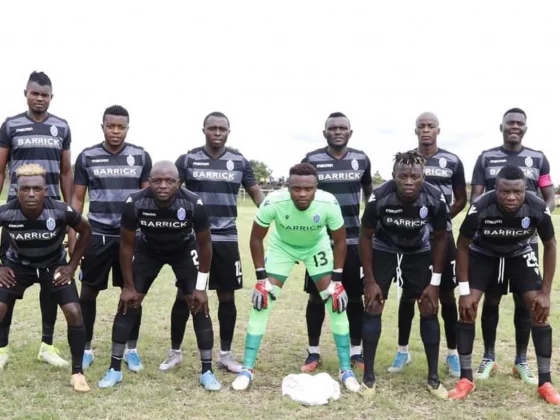ZAMBIA is known to be a highly impoverished nation despite it’s middle income ranking and so efforts to bridge the gap between the rich and the poor such as the social cash transfer should never be taken out of context.As we approach the 2021 General Elections there has been talk that Government is using SCT to buy votes.This is laughable, when you consider that the Patriotic Fornt was able to gain leadership based on its pro-poor manifesto.It is encouraging that the disbursement of social cash transfer is being done all across the country and primarily focused to rural areas. From 32,642 in 2011, there are now 632,237 beneficiaries countrywide.News that Government has secured additional funds for the social cash transfer in seven districts in North-western province lends credence to the fact that there is equal distribution of this aid.Last week, Dr Bwalya Mukefuwa from the Ministry of Community Development and Social Services, disclosed the increased funding during a courtesy call on North Western province Minister Nathaniel Mubukwanu in Solwezi.“Seven districts from North-western province will benefit from these funds,” Dr Bwalya said.He said beneficiaries in Mwinilunga, Ikelengi, Kabompo, Zambezi, Chavuma, Manyinga and Mufumbwe would be added to the list.Dr Bwalya said the beneficiaries would get their benefits every two months for the entire year.“Normally the payment of social cash transfer is paid bi-monthly so this time looking at the time of the constraints we are suggesting that we pay for the whole year,” said.The Social Cash Transfer programme was adopted to be one of the major social protection interventions whose aim is to continuously reduce extreme poverty in Zambia. The Program is among other social protection initiatives such as the Public Welfare Assistance Scheme (PWAS) which involves in kind transfers to the needy and the Food Programme Management which is the provision of food to vulnerable households. These programmes implemented by the Ministry of Community Development and Social Services (MCDSS) for incapacitated households.
The main aim of these programmes is to;
- Provide and promote quality social welfare services
- Alleviate poverty
- Reduce destitution
- Promote family values and
- Reducing juvenile delinquency.Beneficiaries of the SCT must be a person over 65 years or an individual with a severe disability (determined by disability assessment), and resident in the community for over 6 months.
The Ministry selects beneficiaries through a harmonized targeting model. Beneficiaries are assessed by the eligibility criteria and capsized through the process outlined;
- Community Sensitisation Community Welfare Assistance Committees (CWACs) make the community aware of the programme and eligibility criteria.
- Beneficiaries (opt-in) Those individuals or groups, who feel that they are eligible, report to SCT ‘desk’ that is set up within their community.
- Living Conditions Test Information about potential individual beneficiaries is entered into the SCT Management Information System (MIS) to conduct a living conditions test to identify the most vulnerable households.
- Community Validation The final proposed list of beneficiaries is shared with the community to gather their feedback on whether the list comprises appropriate SCT beneficiaries.A COVID-19 Emergency Cash Transfers (C-ECT) programme to cushion the impact of the pandemic on vulnerable households in the country. The USD $20 million programme is set to pay K400 per household for a period of six months, reaching over 118,000 households (over 600,000 individuals) in 18 affected target districts.The response is implemented through the United Nations Joint Programme on Social Protection and financially supported by the European Union, Germany through the KFW Development Bank, Sweden, Ireland, and the United Kingdom of Great Britain and Northern Ireland.Additionally, the C-ECT programme will be jointly implemented by the Government, selected non-governmental organisations (NGOs) and the United Nations Agencies among them the International Labour Organisation (ILO), World Food Programmme (WFP), United Nations Children’s Emergency Fund (UNICEF) and United Nations Development Programme (UNDP).When launching the ECT Programme, Minister of Community Development and Social Services Kampamba Mulenga Chewe said Government would implement emergency support targeted at identified households directly and indirectly affected by COVID-19 to protect livelihoods, strengthen pandemic control and avert negative coping strategies.She added that the programme will target beneficiaries who are on the regular Social Cash Transfer (SCT) programme and other vulnerable groups most affected by the pandemic.“Eligible households include those with a severely disabled member, chronically ill member on palliative care, headed by a single woman taking care of three or more children, headed by a child, an elderly member and those in the informal sector.Households adversely impacted and are food insecure,” she said. The emergency support in form of cash transfers and food packs is not a regular social cash programme but a temporal social safety net that has been introduced to mitigate the impact of COVID-19 on vulnerable households.A transfer value of K400 per month shall be given to the targeted households to enable them meet foods and other basic essentials.The COVID-19 emergency cash transfer support will be given for six months as outlined in the Government multi-sectoral emergency response plan.ILO Country Office Director for Zambia, Malawi and Mozambique, George Okutho said COVID-19 has presented a myriad of challenges, including loss of employment and consequently diminished household incomes, adding that some workers, especially in the informal economy, have resorted to negative coping strategies that have adverse impacts on their lives and well-being.“The COVID-19 pandemic has adversely impacted the way we live and conduct business. It serves as a reminder to us of the urgency to accelerate progress towards the building of comprehensive social protection systems, and the realization of social justice,” said Mr. Okutho.And WFP Country Representative Jennifer Bitonde pointed out that in order to promote the consumption of nutritious food, her organization in partnership with UNICEF and ILO, as well as NGO partners had developed common messages to be disseminated through text messages prior to and following the cash disbursement.UNICEF Country Representative Noala Skinner hailed the partnership between the Government, the donors and the UN Agencies in enhancing social protection and ensuring a shock-responsive social protection system that can respond, like in these difficult COVID-19 times, to worsening vulnerabilities among Zambians.The North Western Province Minister said the coming of the funds in the province was a demonstration that government did not segregate.“Here is an extra boost to the needs of our people, and then somebody can go and stand on the mountain and say that this Government is very segregate, they are not supporting us because we did not vote for them, we voted for the opposition,” Mr Mubukwanu wondered.The minister stated that looking at the districts benefitting, it was possible that the province could be getting even far much more than some strongholds of the ruling party.Mr Mubukwanu urged the officers to expedite the process so that the beneficiaries could get the much needed resources.In light of the Covid-19 pandemic, the digitization of the process is equally welcome as the process of disbursing monies has made it faster and safer.
Social cash transfer should be seen as exactly what it is, Government’s effort to assist the most vulnerable in society to step out of poverty.






